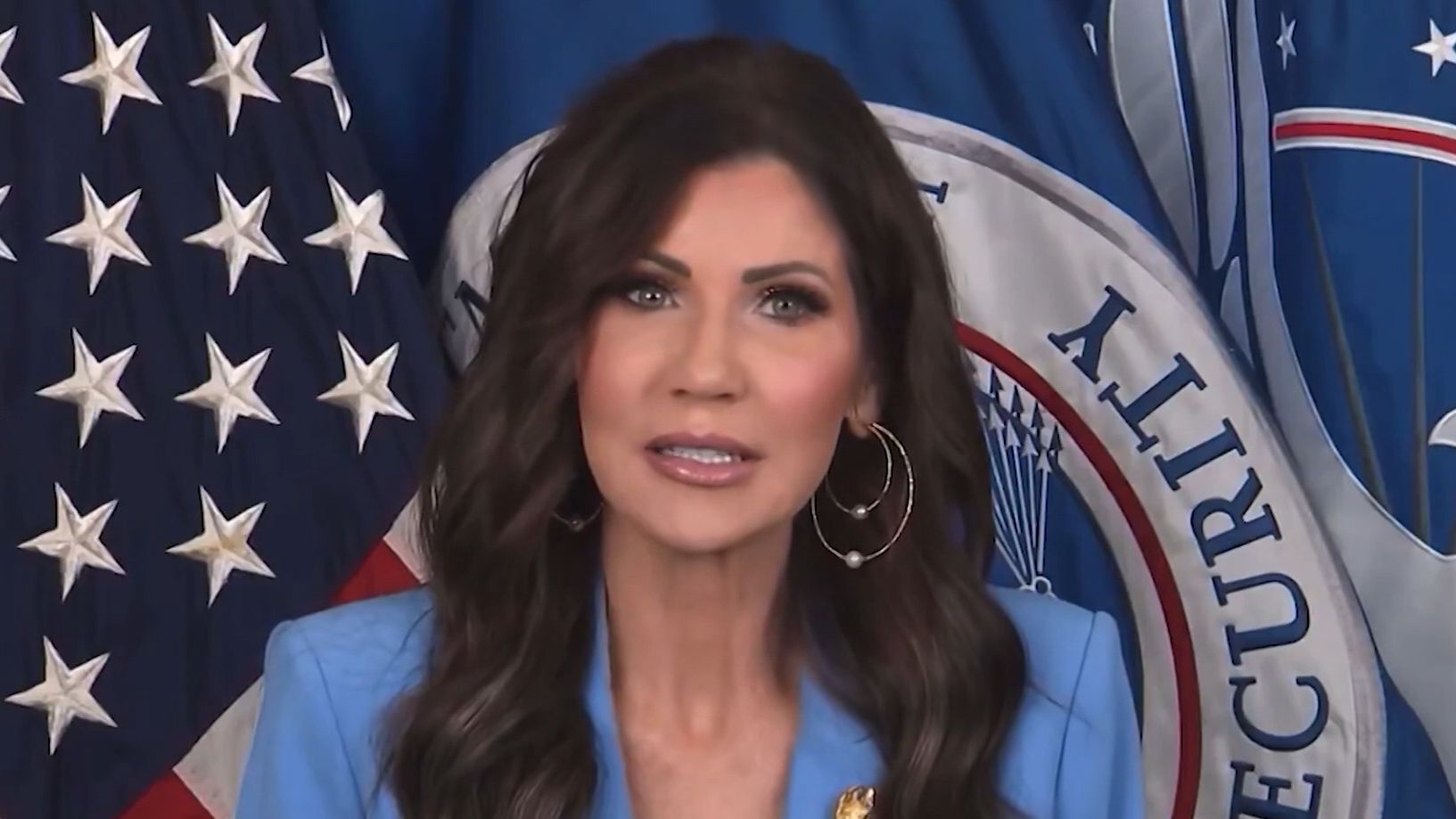A video featuring the Secretary of Homeland Security has triggered new questions about potential violations of the Hatch Act, as several legal experts warn the message could be seen as political activity conducted with government resources.
James Berry, a veteran attorney who has handled Hatch Act matters for more than 26 years and has represented both Republicans and Democrats, said the video “completely runs afoul” of the 1939 federal law. The Hatch Act prohibits government employees from engaging in certain political activities to ensure agencies operate in a nonpartisan manner.
“The Hatch Act applies to the secretary of DHS,” Berry said. “She filmed it, most likely, using government resources. Even though it’s being played at the airport, which is like a separate entity, it’s definitely a political activity.”
If a formal complaint is filed, it would typically go to the U.S. Office of Special Counsel, which investigates alleged violations. The findings are then forwarded to the president, who decides what action—if any—is taken.
Berry noted that consequences are unlikely, given that President Donald Trump would ultimately make the decision. In his previous administration, senior officials including Peter Navarro and Kellyanne Conway were found to have violated the Hatch Act, but no penalties were imposed.
The use of airport video monitors is also part of the controversy. The Transportation Security Administration owns some of the screens used to show security reminders and DHS messaging, but not all displays are under TSA control. Many belong to local airport authorities.
“Airports have the right to determine what side of the legal line they want to be on,” said Juliette Kayyem, a former assistant secretary at DHS under the Obama administration and currently a national security analyst for CNN. “There is nothing in federal law that compels them to run these videos.”
Passengers or airline employees could file complaints with airport authorities, she added, and in some states, local regulations could limit the display of political content on publicly controlled monitors.
“Basically, the airports are saying this is a line we don’t want to cross,” Kayyem said. “We have a responsibility to the American flying public to do so safely and securely, and what she’s doing is not that.”
What remains unclear is whether airports could face federal pushback—including the loss of funding—if they refuse to play the message. The Department of Transportation has previously threatened funding cuts to enforce compliance with federal requirements. Still, Kayyem noted that any move that disrupts air travel could prompt resistance from airlines and travelers alike.
“The question is, what will Noem do in response, or will she just ignore it? Will she just move on?” Kayyem said.
For now, the issue remains unresolved, with legal questions lingering over how far political messaging can go inside federally regulated transportation hubs—and whether anyone in Washington is willing to enforce the limits.

